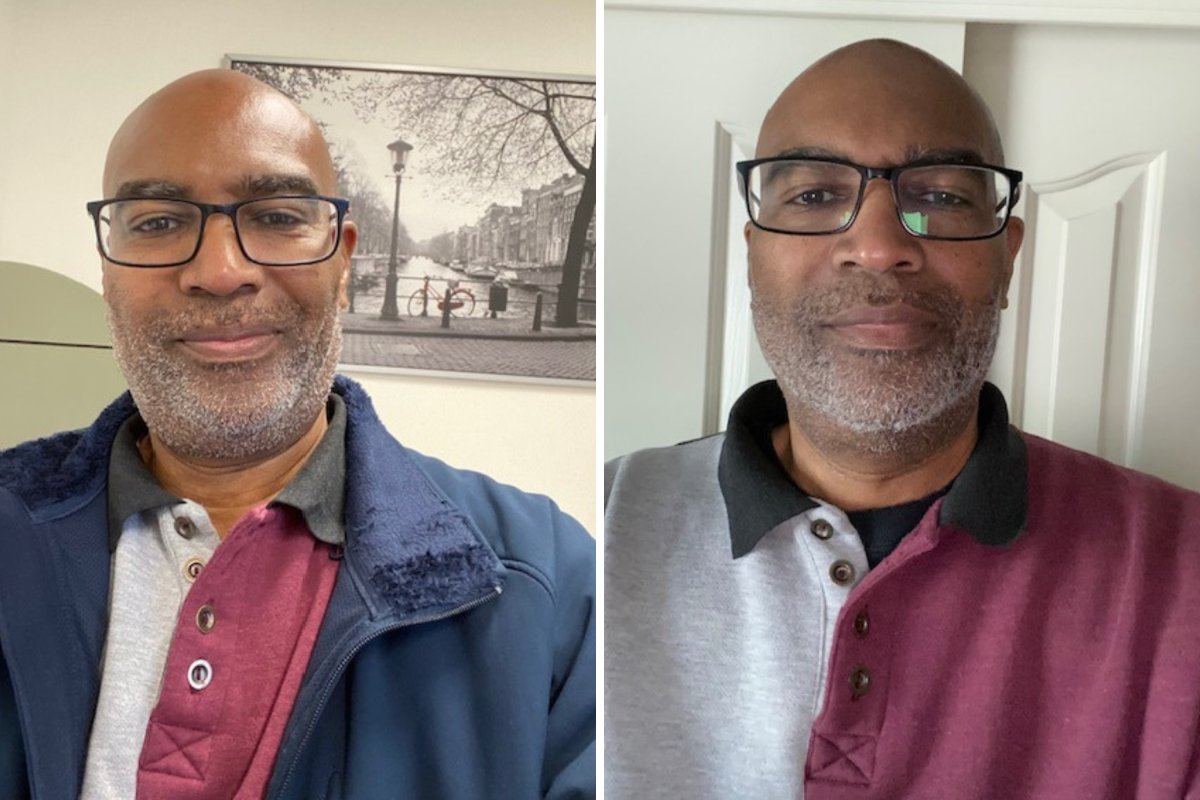I was born and raised in Jackson, Mississippi, in the late 50s and early 60s. My experience with racism was much more prominent than some people's experience today.
Imagine being in line at a store and you're next, but a white person pushes their way past you and the clerk takes them instead of you. Imagine going to the doctor's office and only being allowed to enter from the rear of the building. Imagine not being allowed to be in certain areas of your city after dark. Imagine living segregated in just about all neighborhoods.
That was the place where I grew up. We knew where we couldn't be. And why was that? Because it was where the white people lived or shopped.
I was raised by my great-grandmother and my grandmother after my mother left to start a better life in California.
It wasn't until I turned 17 that my great-grandmother passed, and I was reunited with my mother in California.
I experienced a culture shock, leaving Mississippi one night and arriving in Los Angeles. I awoke the next morning surrounded by white people. I was thrown into what felt like an impossible situation, having never known this type of integration.
I still had to finish my senior year of high school. I was enrolled in a very mixed school with Black people, white people, Asian people, and other ethnicities I didn't recognize at the time.

My mom had me ride to school with her Asian friend's son, his father took him each morning. I had a lot of changing to do in a short period, or risk being an outsider in California.
The old thoughts I had been used to before had to be dropped. No more referring to my new friends using the N-word, no more hanging out with only Black people, no more segregated neighborhoods, no more viewing white people as an enemy, no more feeling less than when I was around white people. Now, they were my peers and not superior to me in any way.
My views on white people were developed under different circumstances. I was the one that had to change the way I approached my new life, my thoughts about white people had to change, and the way I dealt with them needed to change.
I looked around at the other Black people and how they interacted with the white kids, how they made friends, and how their approach was different from mine.
After being in school for that year and taking a long look at myself and where I had come from to where I was now, I embraced that change. Once I realized that my peers' wants and desires in life were the same as mine, I had a whole different reference in mind for them.
I have lost white friends in my lifetime, only because they weren't good people, or because they lost contact with me after a relocation. My white friends and I make jokes about each other's ethnicities all the time, me about them and them about me. Maybe I think a joke is just that—a joke—not racism from friends.
My white friend at work, whom I have known for over 25 years, feels comfortable enough to approach me and ask racial questions. He knows that I wouldn't take offense to them, and would give him an honest answer which would benefit him going forward.
My wife of 39 years is also white. Do I think she married me to be able to make racial jokes about me, or because she loves me? My best friend of 30 years is white, do I think he hangs out with me or calls me his best friend because he wants to make racial jokes? No, it couldn't be!
I believe that people who are sensitive to jokes need to take a long look at themselves and figure out what makes them believe everything is racist in this country.
Sometimes, white people just don't know any better and need to genuinely be educated. Your true friends are your true friends, and they will always stick by you no matter what. If you can't be yourself around them, then that's an issue.
I have no such problems with any of my white friends. I'd advise others to learn to enjoy life and the friends around them, and stop looking at everything through the prism of racism. Your life will improve, I promise you.
Eugene Lathan worked in the fire sprinkler industry for 38 years as a sprinkler designer, estimator and project manager. As of February 2024, he retired. He is also the author of: The Black Man's Guide to Working in a White Man's World.
All views expressed are the author's own.
Do you have a unique experience or personal story to share? See our Reader Submissions Guide and then email the My Turn team at myturn@newsweek.com.
Uncommon Knowledge
Newsweek is committed to challenging conventional wisdom and finding connections in the search for common ground.
Newsweek is committed to challenging conventional wisdom and finding connections in the search for common ground.
About the writer
Eugene Lathan worked in the fire sprinkler industry for 38 years as a sprinkler designer, estimator and project manager. As ... Read more
To read how Newsweek uses AI as a newsroom tool, Click here.








